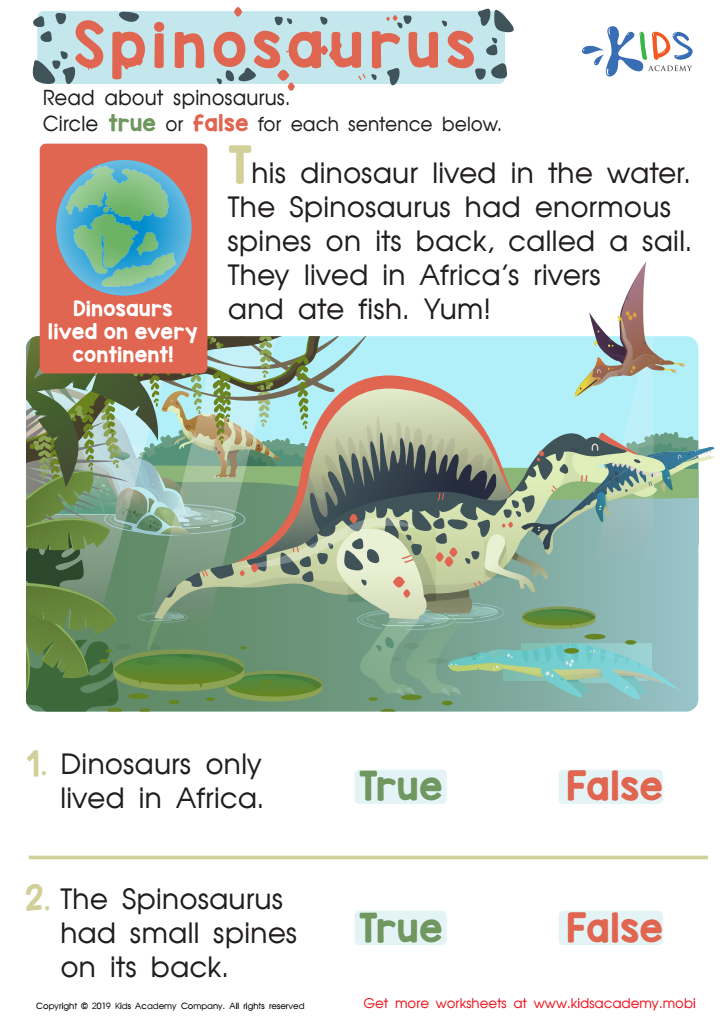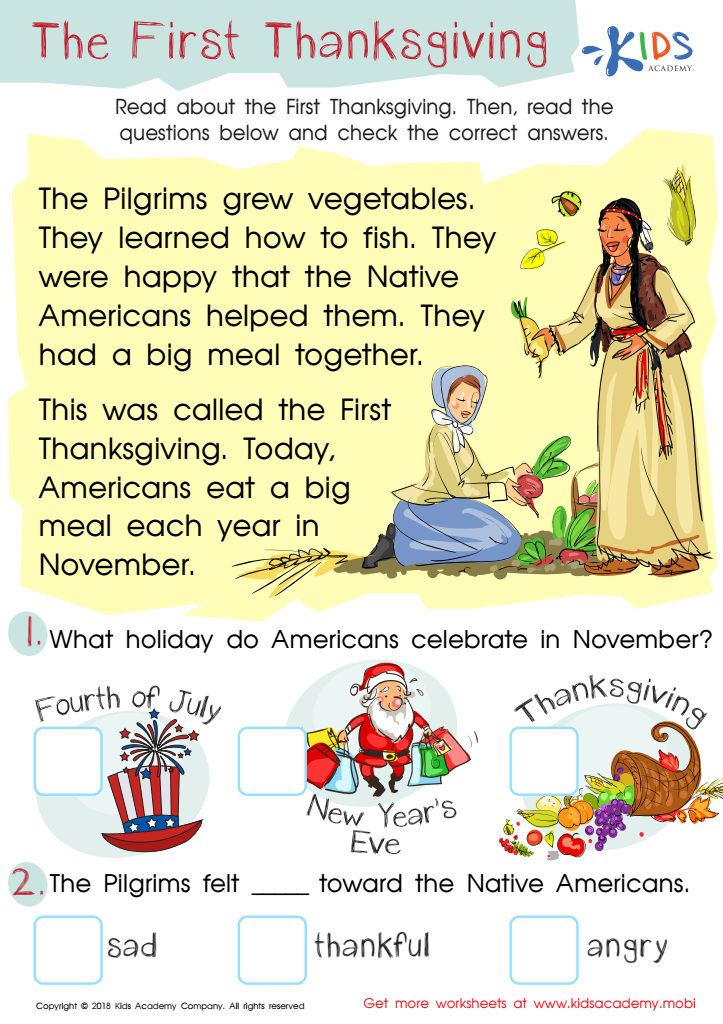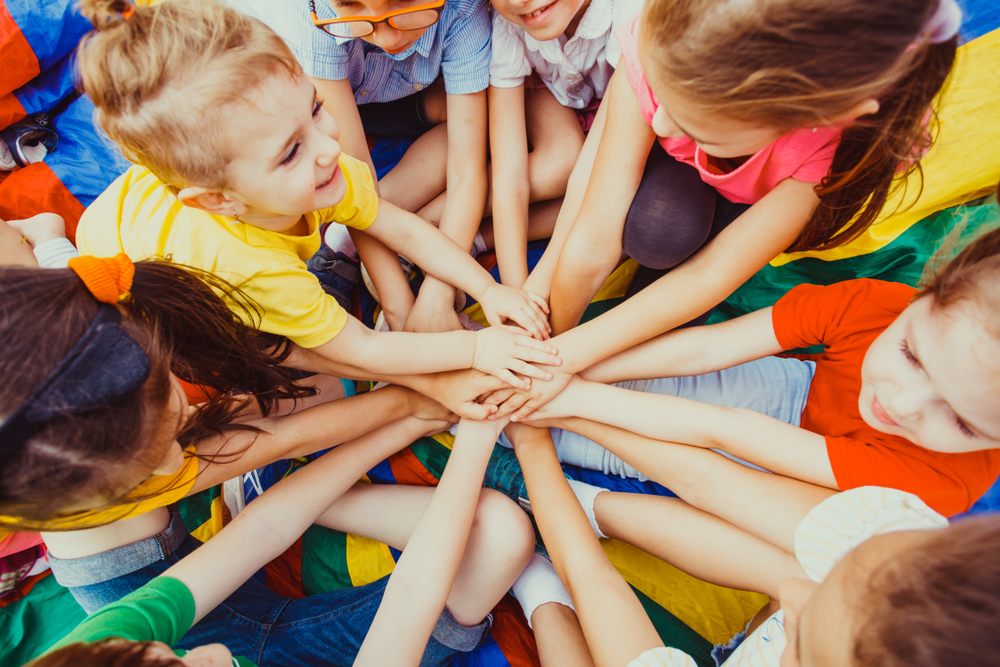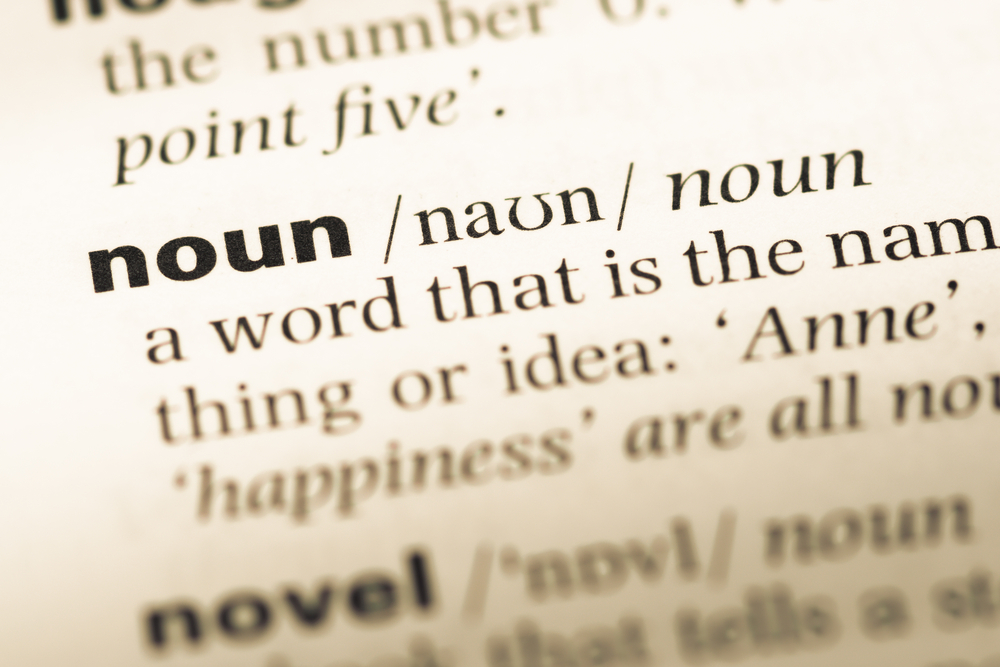Normal Reading Non-Fiction worksheets activities for Ages 7-8
2 filtered results
-
From - To


Spinosaurus Assessment Worksheet


Assessment: First Thanksgiving Worksheet
Normal Reading Non-Fiction worksheets activities play a pivotal role in enhancing students' literacy and comprehension skills. In today’s information-rich world, the ability to dissect and understand non-fiction texts is more crucial than ever. These worksheets, tailored for a variety of reading levels and interests, offer a structured approach to learning that can significantly benefit students.
First and foremost, Normal Reading Non-Fiction worksheets activities are instrumental in building critical thinking skills. As students engage with factual texts, they are encouraged to question, analyze, and evaluate the information presented. This not only aids in comprehension but also fosters a healthy skepticism and curiosity. Students learn to distinguish between facts, opinions, and biases, a skill that is increasingly important in navigating the vast amount of information available today.
Moreover, these activities enhance reading fluency and vocabulary. Non-fiction texts often contain specialized language and concepts related to fields such as science, history, and technology. By working through Normal Reading Non-Fiction worksheets, students encounter and familiarize themselves with this terminology, broadening their academic vocabulary and understanding of complex ideas.
Additionally, these worksheets prepare students for real-world tasks. Whether it's reading a manual, understanding a contract, or analyzing a news article, the ability to comprehend and critically engage with non-fiction texts is indispensable. Normal Reading Non-Fiction worksheets activities mirror these real-life reading scenarios, equipping students with the skills they need to navigate adulthood successfully.
Engagement with diverse topics is another benefit. These worksheets cover a wide range of subjects, exposing students to new ideas and perspectives. This not only enhances their general knowledge but also sparks interest in areas they might not encounter otherwise. Such exposure can inspire future academic and career pursuits.
In conclusion, Normal Reading Non-Fiction worksheets activities are a vital tool in the educational toolbox. They foster critical thinking, enhance literacy, prepare students for real-world tasks, and expand their horizons. In the quest for well-rounded, informed individuals, these activities are not just useful; they are essential.
 Assign to My Students
Assign to My Students
















